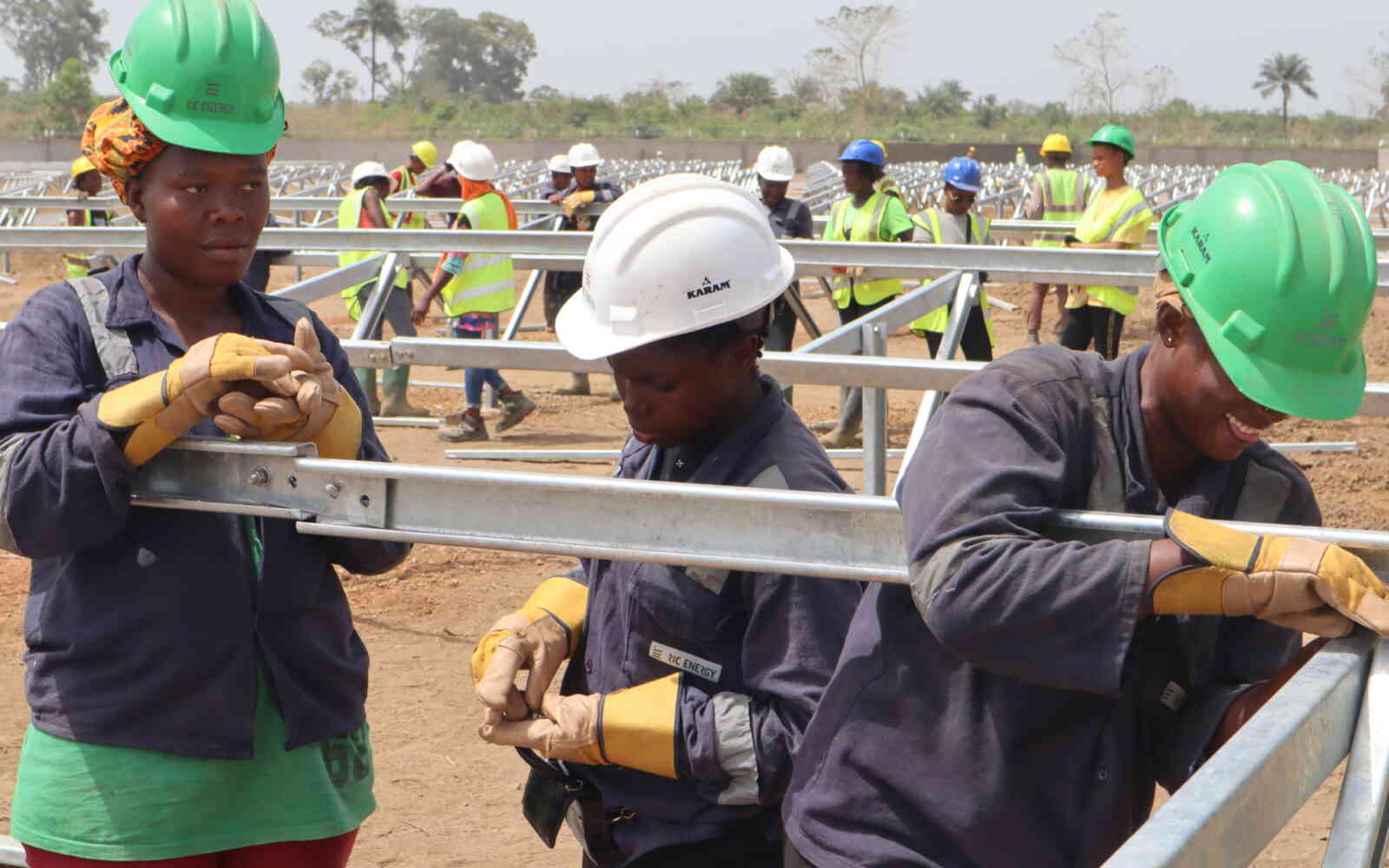The United Nations Office for Project Services (UNOPS)
President of Sierra Leone commissions new solar power plant in Moyamba Town
Solar energy now provides power for homes, businesses and essential services in Moyamba Town, marking a turning point in Sierra Leone's journey towards energy independence.
The President of Sierra Leone has commissioned a 1-megawatt solar power plant in Moyamba Town, Moyamba District, as part of the 'Enhancing Sierra Leone Energy Access' project implemented by UNOPS on behalf of the government with World Bank financing. This marks a significant leap forward in expanding access to sustainable and reliable energy in Sierra Leone.
"This project is a cornerstone of our national development strategy, and we are dedicated to replicating its success across the nation to achieve universal energy access," said President Julius Maada Bio. "It's more than just infrastructure – it's an investment in the health, education and economic prosperity of our communities, and a promise to leave no one behind in our journey towards a brighter future."
Today, we proudly switched on the 1MW solar power plant in Moyamba, which will enhance the thermal generator already in place to provide sustainable electricity to Moyamba. This is not just a temporary solution; we are committed to finding a lasting fix that will truly benefit… pic.twitter.com/WAXQl6JRc6
— Julius Maada Bio (@julius_maadabio) May 17, 2025
During the commissioning ceremony, the President highlighted the importance of effective collaboration with partners to ensure communities gain access to reliable electricity, referencing the significant contributions made by the World Bank and UNOPS and other development partners.
"The Moyamba Solar Power Plant is a powerful example of how renewable energy can drive positive change. We believe that such initiatives are crucial in the global transition towards cleaner energy sources, building a more sustainable future for all and improving lives in Sierra Leone," said Silvia Gallo, Director of UNOPS West Africa Multi-Country Office.
Sierra Leone continues to face significant energy challenges, with national electricity access rates at 37 per cent and rural access as low as 6 per cent.
The project addresses this challenge by delivering cost-effective solar energy solutions to small towns and rural communities that would otherwise remain unconnected to the main grid.
UNOPS is working with the government to develop solar mini-grids and standalone renewable energy systems, which will provide about 3,000 households and 200 businesses with access to renewable solar energy.




Electricity will also be provided to around 200 health facilities and 500 schools through the standalone solar energy systems. More than 400 standalone systems are already installed in schools and health facilities.
“Access to electricity is a fundamental driver of development, and the 'Enhancing Sierra Leone Energy Access' project is designed to unlock opportunities, improve public services, and empower communities throughout Sierra Leone,” said Abdu Muwonge, World Bank Country Manager for Sierra Leone.
Read more here.














